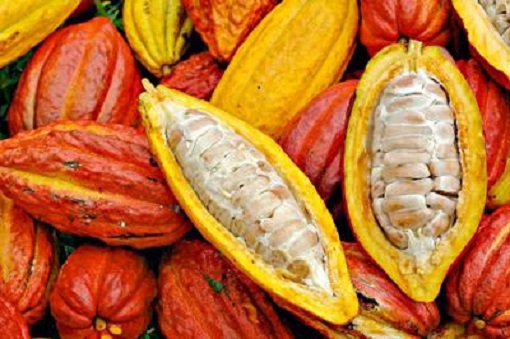
Reaping big from cocoa
INTERVIEW: Stephen Sembuya is the CEO of Pink Food Industries, a cocoa-producing enterprise. He spoke to Ian Katusiime about cocoa and the other pertinent issues in the industry.
What influences your management style?
I come from an industrious background. My dad was the founder of Sembule Group, which had companies like Sembule Investment Bank now Bank of Africa formerly Allied Bank. It also had Pan World Insurance now Lions Assurance. He was also trading in electronics like televisions and radios. So growing up in such a home meant that there were no shortcuts to work.
Briefly, take us through the process of making chocolate at your factory?
Once we have harvested the cocoa beans from the farm, we take them through the process of fermentation. Fermentation helps to remove water content in the beans and also gives it the chocolate taste. Once fermentation is done for a period of seven days, the beans are dried for about 5-7 days. The dried cocoa beans are then taken to the factory where another process starts with roasting to kill the bacteria that could have been carried from the garden to fermentation. Secondly, roasting also helps to give chocolate a future shelf life and the taste or aroma of the chocolate. We then take it through winnowing. This is where we remove the husks and the inside parts called the nibs. After the winnowing we take the beans through pre-grinding, grinding and then temporary moulding of the chocolate depending the required shape. All this is done by Ugandans.

What progress have you made on exporting to the external market?
To start with, our new innovations have been able to attract the entire world. Individuals from Asia, Europe and Africa have been coming here. We have also been able to attract world media houses such as CNN, AFP, CCTV, BBC, and Reuters. These have given us huge exposure and as a result, we have got some orders for our semi-finished chocolate. Semi-finished means we put it up to the level of chocolate paste. Some companies prefer it at that level.
Some observers say the cocoa industry in Uganda has failed to take off?
It has taken off from where it was ten years ago. The government was not putting focus on it although it is now the fourth-highest foreign exchange earning cash crop in Uganda today. Just last year, cocoa earned Uganda $74m. We are number five in Africa and still taking tremendous steps. Now, the government has been coming on board with Operation Wealth Creation – giving out seedlings to all Ugandans willing to go into cocoa growing. Cocoa earns more cash in terms of price per kilo than any other cash crop. A kilo of cocoa beans sell for about Shs 9m000 compared to coffee, which sells for about half of that.
What critical challenges do you face in the industry?
One of the major challenges is that the farmers have not been trained well on how to do proper fermentation and proper drying of cocoa beans. When they take it up to the market, they are paid less, for example by companies like Olam Esco. The other challenge is that farmers need the government to come in and realise that there is a huge potential and demand for cocoa worldwide. China’s demand has gone up by 6%. In traditional cocoa-growing countries such as Ghana, their trees have grown old, which has spiked demand elsewhere.
What interventions should the government take to boost the cocoa industry?
The government should come in through associations. I am trying to start an association for cocoa growers and processors. With this, the government can always look at the problems affecting cocoa growers in different regions. I once met the minister of agriculture but people at the ministry are have been slow on acting. They have been slow at implementation.
Where do you see Pink Food Industries in five years from now?
Right now, I have been blessed that a number of of people who have seen the potential in Pink Foods and there is a result. I have new partners coming in.
 The Independent Uganda: You get the Truth we Pay the Price
The Independent Uganda: You get the Truth we Pay the Price





